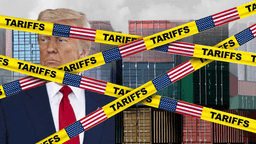News Files

Speaking at TEPAV, American Political Scientist Arato stated that the minimum precondition for consensus in Turkey was the agreement of the AKP and the CHP, the absence of which will bring a deadlock.
ANKARA - American Political Scientist Prof. Andrew Arato maintained that constitutional consensus in Turkey cannot be defined as a certain number and said: "That number will be sufficient consensus when it includes a sufficient part of the Turkish population so the thing will have legitimacy in the eyes of all those elements who are important enough for Turkish life. In this country I think that if you don't get AKP and CHP to agree it's not sufficient."
"Constitution Experts Seminar Series" TEPAV initiated to contribute to the constitution making process continues with new meetings. At the last meeting of the series held on Tuesday, May 17, 2011, American Political Scientist Prof. Andrew Arato delivered a speech. Arato who served as a consultant in the constitution making processes in Nepal and Hungary made important assessments on the recent developments in the constitution making process in Turkey.
Delivering a speech at the meeting titled "Constitutional Revolutions and Counter-revolutions" at TEPAV, Prof. Arato of New School University, New York Dorothy Hart Hirshon Political and Social Theory Professor, stressed that consensus was the key in the constitution making process in Turkey whereas the process was constrained by the election system in effect.
In response to the question "What is consensus? Do you have any definition for Turkey" Arato said: "This is not a question of definition. Someone could define it as unanimity and someone could definite it as a number." Arguing that in modern constitutional terms consensus must be between majority and unanimity, Arato maintained: "Consensus can be between majority and unanimity. Where it is put is a political matter." Arato added:
"In the Turkish constitution, consensus can mean two or even three different things. But how can you say what it is now is consensus... I cannot attach a certain number to consensus. But sufficient consensus must be a number that will include a sufficient part of the Turkish population so the thing will have legitimacy in the eyes of all those elements which are important enough for Turkish life. I think that if you don't get AKP and CHP to agree it's not sufficient. This is my personal view. I could be wrong but I think that would be my working operation rule. It is not a normative principle. Why is it the AKP and the CHP but not some other two? I just think that this is the way things are in Turkey but I think I would like to include many more. For instance, I would want the left. There's no left in this. I would want the Turkish left to like it because I'm actually leftist myself and would be good if this thing had much more social element than these two parties would put in. But at the minimum, these two parties should agree; because otherwise you're going to have the same thing continuing and the thing will not work beyond this."
10 percent election threshold is a constraint
Arato stated that the 10% election threshold was a significant constraint for the constitution making process. Emphasizing that the MHP is faced with the risk of not getting in the Parliament, Arato said: "Such a risk is a death sentence for a political party. If the threshold is reduced, two or three more parties can get in. But the parliament is not making effort to reduce it." Touching upon Prime Minister Erdoğan's statements that the election threshold might be reduced by 1-2 points after the elections, Arato maintained that the threshold can be legitimate only at or below 5% at the first stage.
"Paper tiger" metaphor for the Constitutional Court
Arato used the "paper tiger" metaphor for the Constitutional Court and stressed the importance of the institution for Turkey. He maintained that the Court became vulnerable to the actions of the executive following the amendments introduced after the September 12, 2010 referendum.
Options to ensure "constrained consensus"
Arato stated that in the case that unconstrained consensus cannot be achieved; the following elements could assure a "constrained consensus":
- Lowering the election threshold,
- Rational strategies voters could have in order to produce more consensus,
- The role of the Constitutional Court in constitutional amendments that can be attempted without enough consensus.
Please click here for the audio record of the meeting.




